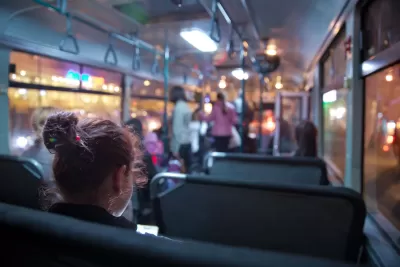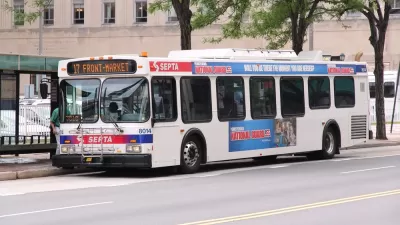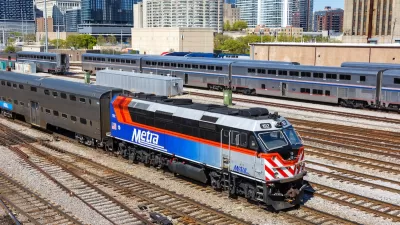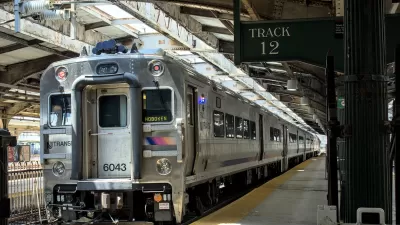Reducing service could cripple transit systems by pushing more riders to consider car ownership, making future recovery even less certain.

Writing in Bloomberg CityLab, David Zipper argues that, despite imminent budget shortfalls, American public transit agencies should do all they can to avoid cutting service.
Cuts should be a last resort, Zipper argues, because once transit systems lose riders to car ownership, it’s much harder to gain them back. “For transit agencies, it’s a disaster if a regular rider cobbles together enough money to buy an automobile.” Service cuts, even more so than fare increases, are more likely to motivate people to shift modes.
Many U.S. transit agencies face massive funding gaps and few options. “Ideally, an influx of new state, regional or local funding can narrow budget gaps enough for systems to at least maintain what service they currently offer.” However, Zipper warns that by cutting service and losing more passengers, systems are even less likely to regain ridership in the future.
FULL STORY: The Last Thing US Transit Agencies Should Do Now

Trump Administration Could Effectively End Housing Voucher Program
Federal officials are eyeing major cuts to the Section 8 program that helps millions of low-income households pay rent.

Planetizen Federal Action Tracker
A weekly monitor of how Trump’s orders and actions are impacting planners and planning in America.

Ken Jennings Launches Transit Web Series
The Jeopardy champ wants you to ride public transit.

Driving Equity and Clean Air: California Invests in Greener School Transportation
California has awarded $500 million to fund 1,000 zero-emission school buses and chargers for educational agencies as part of its effort to reduce pollution, improve student health, and accelerate the transition to clean transportation.

Congress Moves to End Reconnecting Communities and Related Grants
The House Transportation and Infrastructure Committee moved to rescind funding for the Neighborhood Equity and Access program, which funds highway removals, freeway caps, transit projects, pedestrian infrastructure, and more.

From Throughway to Public Space: Taking Back the American Street
How the Covid-19 pandemic taught us new ways to reclaim city streets from cars.
Urban Design for Planners 1: Software Tools
This six-course series explores essential urban design concepts using open source software and equips planners with the tools they need to participate fully in the urban design process.
Planning for Universal Design
Learn the tools for implementing Universal Design in planning regulations.
Heyer Gruel & Associates PA
Ada County Highway District
Institute for Housing and Urban Development Studies (IHS)
City of Grandview
Harvard GSD Executive Education
Toledo-Lucas County Plan Commissions
Salt Lake City
NYU Wagner Graduate School of Public Service





























